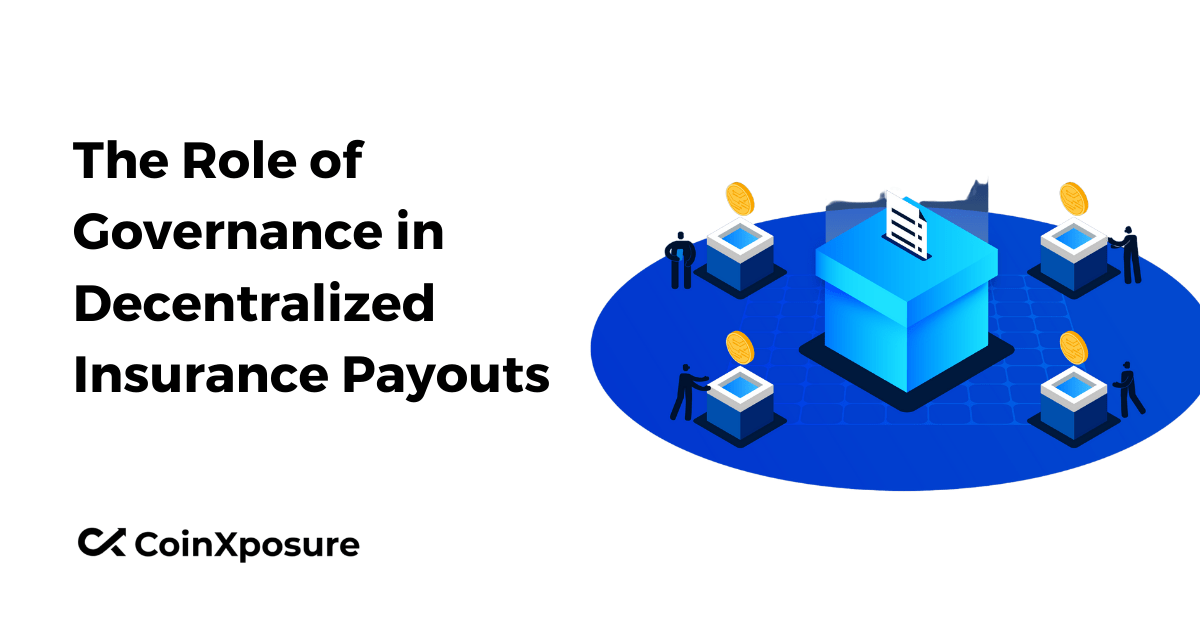Decentralized insurance represents a transformative paradigm shift in the insurance industry, leveraging blockchain technology and decentralized governance to enhance transparency, efficiency, and accessibility.
At the heart of this innovation lies governance – the mechanisms and processes that govern decision-making and ensure the integrity of decentralized systems.
In the context of decentralized insurance payouts, governance plays a pivotal role in safeguarding stakeholders’ interests, managing risks, and fostering trust in the ecosystem.
This article provides an overview of governance’s critical role in shaping the decentralized insurance payouts’ landscape, exploring its implications for fairness, solvency, protocol implementation, and trust establishment.
By examining governance mechanisms and their impact, we delve into the challenges and opportunities presented by decentralized insurance, offering insights into its potential to revolutionize traditional insurance models.
Decentralized Insurance Payouts
Decentralized insurance payouts represent a groundbreaking innovation within the insurance industry, leveraging blockchain technology and decentralized governance to streamline and enhance the claims process.
Traditional insurance models often involve centralized intermediaries, leading to inefficiencies, delays, and potential trust issues.
In contrast, decentralized insurance payouts offer a transparent, automated, and secure alternative by utilizing smart contracts and decentralized autonomous organizations (DAOs).
By examining how decentralized technologies are reshaping insurance payouts, we uncover the potential for greater efficiency, fairness, and accessibility in insurance claims processing.
Governance in Decentralized Systems
Governance in decentralized systems represents a fundamental pillar of trust, transparency, and resilience in distributed networks.
Unlike centralized structures, where decision-making authority resides with a single entity or institution, decentralized systems distribute power among network participants through consensus mechanisms and decentralized autonomous organizations (DAOs).
This introduction provides an overview of governance in decentralized systems, exploring its significance, mechanisms, and challenges.
By examining the principles and practices of decentralized governance, we uncover its role in ensuring the integrity, sustainability, and adaptability of decentralized networks across various domains, from blockchain and cryptocurrencies to decentralized finance (DeFi) and beyond.
Role of Governance in Decentralized Insurance Payouts
Governance plays a pivotal role in the functionality and integrity of decentralized insurance payouts, offering a framework for decision-making, risk management, and community engagement within the ecosystem.
In decentralized insurance, where traditional intermediaries are replaced by smart contracts and decentralized autonomous organizations (DAOs), governance mechanisms ensure transparency, fairness, and accountability in the claims process.
By examining the principles and practices of governance in decentralized insurance, we uncover its potential to revolutionize the insurance industry by promoting efficiency, resilience, and user empowerment.
Challenges and Considerations
Despite the promising potential of decentralized insurance payouts, several challenges and considerations must be addressed to ensure the effectiveness and sustainability of these systems.
Scalability
Decentralized systems face scalability limitations due to the need for consensus among network participants and the computational overhead associated with processing transactions on the blockchain.
As the user base and transaction volume increase, scalability becomes a significant concern that requires innovative solutions to maintain system performance.
Regulatory Compliance
Regulatory compliance presents a significant challenge for decentralized insurance platforms, operating across multiple jurisdictions with varying legal frameworks.
Ensuring compliance with regulatory requirements, such as Know Your Customer (KYC) and Anti-Money Laundering (AML) laws, while maintaining the principles of decentralization, poses a complex dilemma for platform developers.
Security
Decentralized insurance platforms are susceptible to security vulnerabilities, including smart contract bugs, protocol exploits, and cyberattacks.
Mitigating security risks requires robust auditing, code review processes, and comprehensive security measures to safeguard user funds and sensitive data.
Addressing these challenges and considerations requires collaboration among platform developers, regulators, and the broader community to foster innovation, enhance security, and promote the adoption of decentralized insurance solutions.
By addressing these challenges proactively, decentralized insurance platforms can realize their full potential in democratizing access to insurance services and revolutionizing the insurance industry.
Conclusion
In conclusion, the role of governance in decentralized insurance payouts is paramount in shaping the future of insurance by leveraging blockchain technology and decentralized governance mechanisms.
Through transparent decision-making processes, risk management strategies, and community engagement, governance ensures decentralized insurance platforms’ integrity, efficiency, and trustworthiness.
As decentralized insurance continues to evolve, collaboration among stakeholders, including developers, regulators, and users, will be essential in driving innovation, mitigating risks, and promoting the widespread adoption of decentralized insurance solutions.
By embracing the principles of decentralization, transparency, and inclusivity, decentralized insurance can democratize access to insurance services, empower users, and usher in a new era of trust and resilience in the insurance industry.












